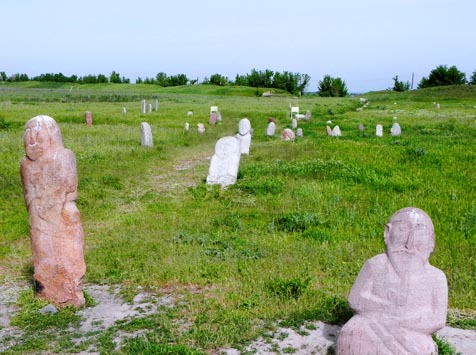kyrgyzstan
Bishkek is the capital of Kyrgyzstan, a modern city with a population approaching 1 million. The city is situated at an altitude of 750 - 900 m in the central part of the Chui valley at the northern foot of the Kyrgyz Range. At 20 km from Bishkek there is watercourse of the Chu River. Within Bishkek there are Western and Eastern Big Chu Canals, as well as an extensive network of irrigation canals. In contrast to the ancient Central Asian cities, streets of Bishkek are in a rectangular layout. There are many parks, boulevards and avenues which might be visited during your tour to Kyrgyzstan.
Bishkek is the main transport hub of the country. There is an international airport "Manas" not far from the city. Besides, the city has a railway and bus stations. Bishkek is supposed to be the starting point for tours to Kyrgyzstan.
The ancestor of Bishkek was a fortress Pishpek established in 1925, which guarded the caravan routes that stretched from Tashkent to Lake Issyk-Kul across the Chu valley.
After the battle with the Russian imperial armies and Kokand conquerors the Fortress Pishpek was destroyed and became part of the lands of the Russian Empire. In 1897 there were only 6600 inhabitants in Pishpek. Pre-Revolutionary Pishpek was more like a dusty village with adobe houses. After Russian invasion the city began to develop rapidly. In 1926, it was renamed after the revolutionary and military leader Mikhail Frunze who was born here. After independence in 1991 the city resumed its previous name but with new interpretation. According to experts, "Bishkek" means - a stick for beating “Koumiss” - the national drink of sour mare's milk.
Bishkek - one of the major cities of Central Asia and the largest city in Kyrgyzstan with population of more than 800 thousand people and more than 80 nationalities. The main language of international communication is Russian.
The city has many places for recreation. There are several large museums, the most interesting of which are the Historical Museum, the Museum of Fine Arts and the Museum named after Frunze. Besides, there are Opera and Ballet Theatre, Russian and Kyrgyz theater, the Bishkek City Drama Theatre, State Philharmonic named after T. Satylganov.
There remained a lot of places, reminiscent of the city's history. Bishkek - the only city in Central Asia, where remained the monument to Vladimir Lenin. Bishkek remembers its history and with pleasure will tell it to anyone who wants to visit a small but cozy capital.












